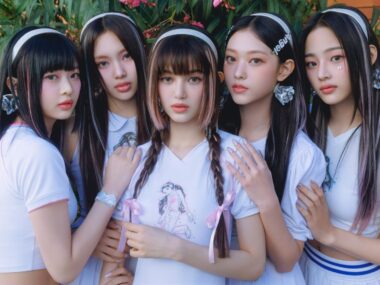What happens when the hunter you fear is hiding in your own reflection?
That’s what Hunter is asking, the lead single from SHINee’s Key 3rd album of the same name. SM Entertainment’s resident style-chameleon, isn’t chasing nostalgia or a breezy summer song. The track steps into horror and fantasy not to tell ghost stories, to make you wonder if the scariest thing you could face is yourself.
A Monster With Your Face
Instead of literal beasts, Hunter zeroes in on the shadow self, the parts we try to ignore until they come knocking. The song’s protagonist isn’t stalking an enemy across moonlit streets. He’s circling the darker side of his own mind. There’s obsession here, tangled with joy, pain, and a creeping awareness that the line between self and “other” is vanishing.
Key plays with this push-pull, writing a story that feels like it could sit inside a psychological thriller. The “hunter” isn’t a villain to be destroyed, but a reflection to be understood, or maybe surrendered to.
Soundtracking the Chase
Musically, Hunter sounds like a love letter to Michael Jackson’s Thriller. A deep, grand bass line drives the track forward, while heavy kick drums land like footsteps closing in. Rhythmic guitar riffs and layered synths keep the tension high, pulling from the retro, electropop edge of SHINee’s earlier hits.
When the Video Stares Back
The music video doesn’t just illustrate the concept, it escalates it. Key plays the man on the run and the figure closing in. Scenes shift between stark shadows and bursts of vivid color, keeping you off-balance. The choreography echoes a hunter’s precision, while the styling plays with dissonance. It’s elegant and Gothic at the same time.
The confrontation between Key and his alter ego isn’t a standard story of good vs evil. It’s messy, ambiguous, with the feeling that maybe victory isn’t about as clear-cut as we want it to be.
A Return To Form
Hunter marks a shift for Key after a string of lighter projects. By choosing horror-inspired imagery and a narrative that taps into psychological thrillers, he’s going back to the ambitious, concept-heavy storytelling that defined some of his most memorable work, like Bad Love and Gasoline.
Hunter isn’t just a song about fear. It’s a reminder that self-confrontation is a form of survival. The monsters we run from don’t always vanish into the night. Sometimes, the only way forward is to turn around and look them in the eyes.






